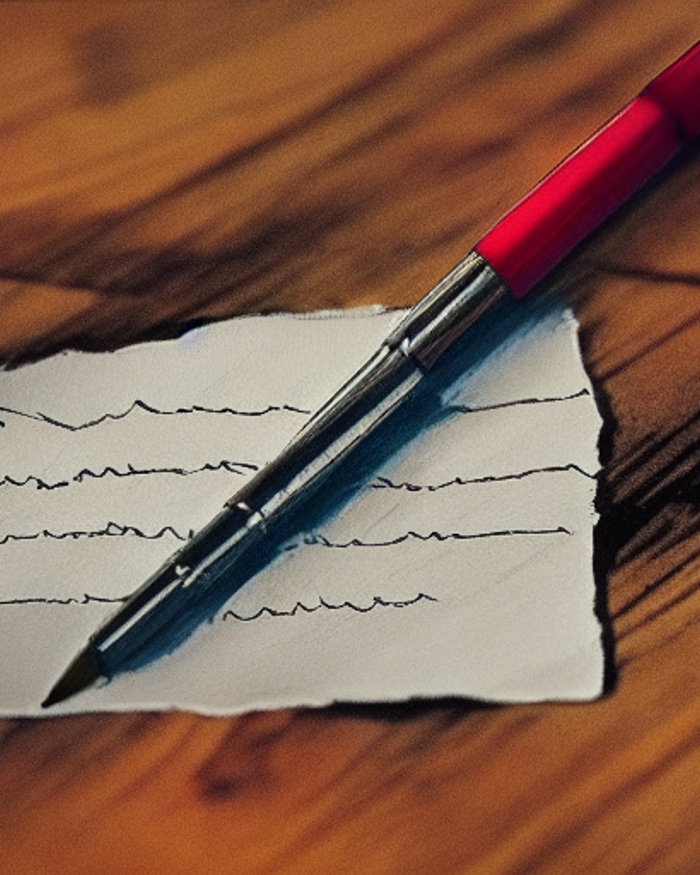It’s a simple habit. A few minutes daily is all it takes. And yet it comes with a surprising number of benefits.
Some benefits of journaling can be felt as soon as you finish an entry. For instance, you may find your mood has improved, or that you have a clearer sense of your next steps. Other effects can take months or even years of committed journaling before they start to reveal themselves.
If you’re on the fence about whether to start journaling, or you’ve been an avid journal writer for years, it always helps to have a sense of direction. The list below should nicely summarize the benefits your journaling practice can provide.
Journaling can help you remember
We all remember the big things—what we did for our last birthday or where we took our last trip. The day-to-day details of life, however, are much more elusive. Just because they flit in and out of our heads faster than a hummingbird high on Hawaiian Punch doesn’t mean they’re unimportant though.
Life is almost entirely comprised of small things. How you feel as you go about your everyday activities is frequently dictated by minor events.
Journaling helps us preserve our best moments for later. Maybe you wrote down the unexpected joke someone told you as they were stepping off the elevator. Or maybe you captured the great conversation you had with your aunt about your new favorite book. Whatever it is, capturing these memories is a gift for your future self—a warm slice of life that can be served up fresh whenever you like.
Journaling also often captures the more mundane details of life too. This can help you discern the relationship between your behavior and your mood over time. If you find yourself in a funk, looking back through your journal can help reveal what activities or situations preceded the slump. With that kind of daily, granular information, you can answer valuable questions: Which changes have made you happiest? Which have made you the most productive?
Journaling is great for processing negative emotions
Writing down the details of a day is a relatively straightforward task. But how do you write when your emotions are in control and your blood pressure is spiking? When you’re angry, hurt, confused, or afraid?
Psychology studies call it expressive writing, and they say it helps. Laypeople like you and I know it as “journaling when you’re pissed off or really sad or otherwise dealing with a mountain of mental distress.”
Expressive writing has been shown time and again to help people gain clarity when dealing with challenging emotional events and intrusive thoughts. The way it works is rather straightforward.
Writing about problems externalizes them. It makes them more legible. Even if it’s an unstructured brain dump, at least you’ve gotten them outside of your head. That alone is a huge benefit—you’ve given yourself some distance from your feelings, which can help reduce stress and prevent you from getting bogged down with anxiety.
When your emotions are written down, you can better grapple with them. It’s easier to notice that you’re repeating yourself, that you’ve made contradictory points, that you might benefit from considering other perspectives, or that you’re just not making any sense at all and perhaps you shouldn’t pay your feelings much mind in this exact moment.
Even if you can’t immediately find a solution to your problems, simply putting them into words can help you feel calmer and more in control.
The emotional benefits of writing persist beyond the act of writing itself. After consistent writing over months, writers become more resilient to everyday stress, and better able to cope with setbacks than they had been before.
Journaling can be an excellent learning aid
Whether you’re actively studying or simply trying to learn and grow every day, journaling can be an incredibly powerful tool.
This is partially because journaling is time dedicated to reflection. It’s a place to pause and give certain thoughts your undivided attention. If you learned something new in the course of your day—a keyboard shortcut in your email client or a technique for sautéing snow peas—try writing it down. By pausing and recording what you learn, you give yourself time to consolidate that knowledge and commit it to memory.
Another way journaling can help your growth is that it allows you to track your progress. This provides two benefits. First, it gives you a sense of accomplishment as you look back and see how far you’ve come. This is important because learning something new can be difficult, and it’s easy to get discouraged along the way.
But tracking your progress also allows you to see which methods are and aren’t working for you. If you’re trying a new workout routine and not seeing results, for example, you can adjust your approach accordingly. The same goes for changes in diet, sleep habits, productivity systems, or anything else.
But journaling isn’t just about tracking numbers. It’s also about processing your thoughts and feelings along the way. What did you learn today? What surprised you? What challenges did you face? By answering these questions regularly, you can deepen your understanding and solidify your learning.
Lastly, journaling can help you make connections that you might not have otherwise made. As you review your entries, you are likely to notice patterns that you hadn’t been aware of before. Maybe you always have a hard time focusing after lunch, or you get your best ideas when you’re taking a walk. This type of insight can be invaluable as you continue to learn and grow.
You can use journaling to make better decisions
We’re bombarded with choices. What should you eat for breakfast? What should you wear? What will you title your magnum opus which is definitely almost close to being finished?
You don’t need to analyze every minute choice in your life. That said, smaller items may arise naturally as items of contemplation in your writing. If they do, take heed and give them a little consideration. Maybe it’s time to change up your breakfast routine after all.
More seriously, journaling is a fantastic tool to help you make better decisions about more significant life choices. If you’re trying to decide whether to change jobs, move to a new city, or end a relationship, writing out your thoughts can be incredibly helpful.
Writing forces you to slow down and think more carefully about your options. You can explore different aspects of your decision in a safe, private space. Even a simple list of pros and cons can provide deeper insight into your desires—certainly more so than a jumble of thoughts knocking around in your head.
If you’ve kept a journal for a while, you can also look back on similar situations in your past. How did you respond then? What were the outcomes? How did you feel about the results? What would you change?
You can also test out different scenarios to imagine how they might play out. While it’s no crystal ball, your imagination can often give you a pretty good sense of what you really want and what’s best for you, which can help you make a decision that you’re happy with in the long run.
Slowing down and giving yourself time doesn’t mean you’ll always make the right decision, but it does make it more likely your decision is a thoughtful and deliberate one that you won’t regret later.
Journaling can help you make big changes
Journaling may help you discover parts of yourself that you’d like to change. Luckily, journaling is also a great way to set goals, make plans, and track progress.
As a habit, daily journaling is small but consistent. That means it’s particularly well-suited to helping you make progress on subtle changes and goals. If you have a goal of being more kind or becoming a better listener, check in on that goal as part of your daily writing. Nudge yourself in the right direction by celebrating the small wins and reminding yourself where the path is when you stray.
That’s not to say that the only changes journaling will help you make are small. Every so often it does reveal an epiphany. These sudden realizations can be life-changing, and the best part is that when they arrive, you have a log of all the thinking that lead up to that realization.
Even if your journaling doesn’t lead to a radical change in direction, it will certainly help you move forward in small but beneficial ways. And over time, those small changes add up to something much bigger and more significant.
Journaling helps you understand yourself
Self-reflection is critical for personal growth. By taking the time to engage with our thoughts and feelings, we gain a better understanding of who we are, what we believe, and how we react to the world around us.
When you understand yourself, you can control your reactions and emotions better. You know your triggers and how you can best deal with difficult situations. This knowledge gives you a sense of power and control in your life.
In addition, when you understand yourself, you have a healthy sense of your strengths and weaknesses. You can then play to those strengths and find ways to improve upon your weaknesses. This makes you a more well-rounded person and enables you to live a fuller life.
Journaling can expand your worldview
If someone asks for our opinion, we often have an answer ready to go. It’s easy to go with our gut reaction on most things. Reassuring. It doesn’t rock the boat too much. But, if we’re engaging with the world and learning new things, we owe it to ourselves to reconsider our opinions every so often.
Journaling can help you break out of this knee-jerk cycle by giving you time to explore different viewpoints in a non-threatening environment. When you write about a situation, try to imagine how someone else might see it. What would they say? What solutions might they suggest and why?
Broadening your perspective in this way can help you develop a more curious, open mind. It can also help you come up with new and innovative solutions to problems that you might never have thought of before. It might just change your mind and help make you feel a little bit less internally inconsistent.
Journaling can help you become more empathetic
Journaling can also help to expand your empathy. When you take the time to understand and articulate someone else’s experience in writing, it helps you see the world from their point of view.
This is an essential skill for anyone who wants to build healthier, more meaningful relationships. It’s also an important tool for anyone who wants to make a difference in the world.
When you can empathize with others, it’s easier to see things from their perspective and understand their needs. This builds your communication skills, helping you create trust and rapport. It can also make it easier to resolve conflicts.
If you want to build stronger relationships or make a positive impact on those around you, journaling can help you develop the empathy and understanding that you need.
Journaling improves your writing skills
Write every day and your writing will get better. It’s as simple as that. The more you write, the more comfortable you’ll become with putting your thoughts into words. You can treat any journaling exercise as a creative writing endeavor for a little added practice.
Try turning your trip to the dentist into a piece of horror that would make Edgar Allen Poe jealous. Or write about your day at the beach as if it was a fairytale. Or imagine explaining a recent decision you made to your five year old self.
Prompts can be very helpful to engage the creative muscles here. Who knows, you might like this kind of writing so much you decide to put together a memoir.
Back to the blog


